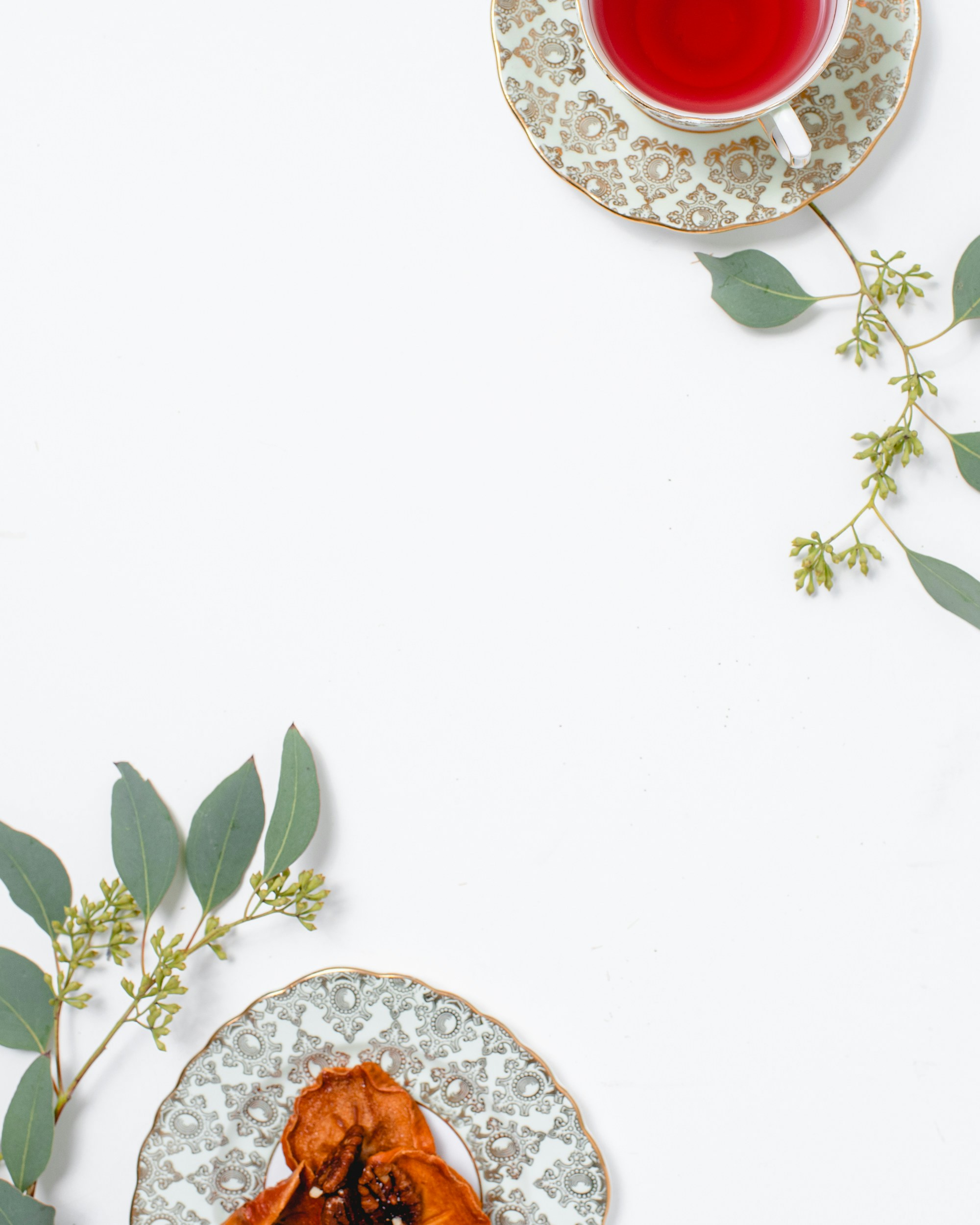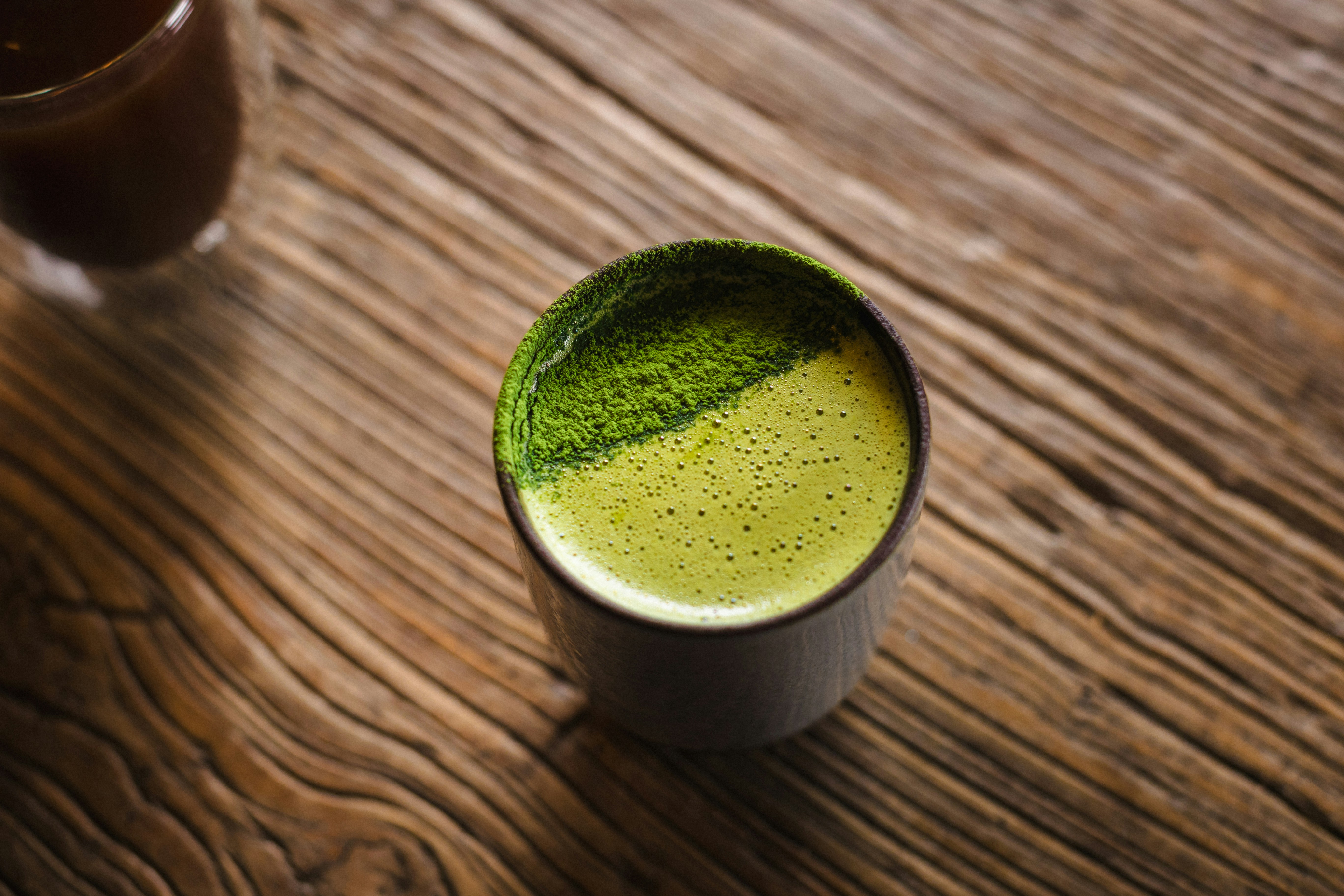Introduction: Discover the Profound Connection Between Holistic Wellness and Herbal Tea
In our increasingly demanding and fast-paced modern world, the pursuit of wellness has become not just a trend, but a vital necessity for individuals seeking equilibrium, tranquility, and balance amidst the daily onslaught of stressors. Wellness transcends the mere absence of illness; it encompasses a comprehensive and holistic approach to health that nourishes and supports the body, mind, and spirit in harmony. As we embark on our personalized journeys toward enhanced well-being, one often underestimated yet remarkably beneficial companion is the ancient and versatile beverage: herbal tea.
Herbal tea, a comforting and flavorful drink derived from the infusion of various herbs, flowers, roots, and spices, has long been recognized and celebrated for its diverse health-enhancing properties. Its rich and storied history spans countless cultures and generations, solidifying its position as a cornerstone in numerous traditional wellness regimens across the globe. Through its myriad of captivating flavors and unique blends, herbal tea offers a comforting and grounding ritual that encourages mindfulness, relaxation, and self-care—a perfect and harmonious complement to any wellness routine, regardless of individual needs or preferences.
In my own personal journey toward holistic wellness, I vividly recall discovering the transformative power of herbal tea during a particularly challenging and stressful period in my life. While grappling with anxiety and desperately seeking solace, I turned to a calming chamomile infusion. This seemingly simple act, steeped in the gentle warmth and profound tranquility provided by the herbal tea, became a pivotal and transformative moment in my path to wellness. Each cup not only soothed my racing thoughts and anxieties but also served as a gentle yet powerful reminder to pause, breathe deeply, and reconnect with myself, fostering a deeper connection to my overall well-being.
The multifaceted benefits of herbal tea extend far beyond mere taste, comfort, and relaxation. Specific herbal blends can demonstrably aid digestion, bolster and strengthen the immune system, promote restful and restorative sleep, and even enhance cognitive function. With an astonishing array of varieties available, there is undoubtedly an herbal tea perfectly suited for every individual, preference, and occasion, enriching the everyday experience with a touch of natural wellness. By consciously incorporating this ancient and revered beverage into our daily rituals, we not only invite tangible health benefits into our lives but also create precious moments of intentionality, grounding ourselves amidst the inevitable chaos and unpredictability of life.
Delving into the Rich and Diverse Tradition of Herbal Tea
Herbal tea, often referred to by the elegant term “tisane,” is a beverage that has deeply woven its roots into the very fabric of countless cultures across the globe. Its historical significance is truly profound, dating back thousands of years to ancient civilizations, where it has been employed not only for its delightful taste and comforting warmth but also for its numerous and well-documented health benefits. Ancient cultures, such as those in China, Egypt, India, and Africa, revered herbal brews and skillfully utilized them in traditional medicine, spiritual practices, and daily life, seeing them as precious gifts from nature with the inherent potential to heal, nurture, and restore balance.
The ancient Chinese culture, for instance, boasts a long-standing and deeply ingrained tradition of using herbal tea for therapeutic and medicinal purposes. The Shen Nong Ben Cao Jing, a revered and ancient medicinal text, meticulously details the healing properties of numerous herbs commonly found in traditional Chinese teas. These carefully crafted herbal infusions were not merely beverages to quench thirst; they served as a symbolic and tangible bridge between the physical and spiritual realms, often consumed during meditation, prayer, or healing rituals. Similarly, in the ancient healing system of Ayurvedic medicine from India, herbal teas are integral and indispensable components of holistic practices aimed at balancing the body’s doshas – energies that govern physiological and psychological functions – reflecting a deep and nuanced understanding of the interconnectedness between nature, human health, and spiritual well-being.
In diverse African traditions, herbal teas meticulously crafted from locally sourced plants and herbs have been used for centuries to treat a wide range of ailments, fostering a deep and enduring connection to the land, its resources, and ancestral wisdom. Stories abound of community gatherings where families and friends come together to share these special brews while passing down invaluable knowledge of medicinal plants, their unique properties, and their traditional uses. In the Western world, herbal tea gradually gained popularity as a gentle yet effective remedy for various discomforts and ailments, further embedding itself into different cultural practices as a soothing, restorative, and deeply comforting drink.
Throughout human history, herbal tea has consistently transcended its status as merely a beverage, evolving into a powerful symbol of well-being, cultural identity, and communal bonding. By engaging with the fascinating stories, ancient traditions, and diverse cultural practices surrounding herbal tea, one can gain a deeper appreciation not only for its diverse flavors and aromatic profiles but also for its powerful connection with health, healing, and cultural heritage.
Herbal tea offers a multitude of health benefits beyond simple hydration, backed by scientific research and traditional wisdom. Rich in antioxidants, herbal teas combat oxidative stress and inflammation, key factors in chronic diseases. Herbs like green tea, chamomile, and hibiscus are particularly potent sources of these protective compounds. Antioxidants neutralize free radicals, potentially mitigating the risk of various health problems.
Digestive support is another notable benefit. Peppermint and ginger teas can soothe the digestive tract, easing discomfort and promoting healthy digestion. Countless individuals have experienced relief from bloating and indigestion by incorporating these teas into their routines. One wellness enthusiast shared how ginger tea became essential in managing her afternoon digestive issues, providing comfort and relief.
Furthermore, herbal teas are renowned for their calming properties, offering solace to those struggling with stress and anxiety. Chamomile tea is particularly effective in promoting relaxation and improving sleep quality. Users testify to its calming effects, leading to more restful nights. These personal experiences underscore the therapeutic potential of herbal infusions.
While the benefits of herbal tea are substantial, a balanced perspective is crucial. Consulting healthcare professionals regarding serious health concerns is advisable, especially when considering herbal remedies alongside conventional treatments. Understanding the properties of herbs and how they complement a wellness routine empowers individuals to harness the full potential of herbal tea for optimal health benefits.
Integrating herbal tea into spiritual practices can enhance mindfulness and inner connection. Transforming tea preparation and consumption into a sacred ritual cultivates presence during meditation. Rituals nurture the spirit, providing a framework for self-exploration and reflection. Choosing teas with specific meanings, like chamomile for tranquility or peppermint for invigoration, can further enhance the meditative experience, aligning intentions with the tea’s properties. The sensory experience—aroma, warmth, and taste—deepens mindfulness, anchoring the mind in the present.
Personal experiences highlight the link between herbal tea and spirituality. A cup of lavender tea after a long day, with its rising fragrant steam, becomes a focal point for breath and meditation, promoting clarity and tranquility. Incorporating herbal tea into routines fosters a meaningful practice enriching spiritual journeys.
Exploring Cultural Rituals Surrounding Herbal Tea
Herbal tea transcends its role as a simple beverage, becoming a significant cultural artifact in many societies. Across the globe, diverse traditions celebrate herbal tea as a means of connection, reflection, and ritual. The Japanese tea ceremony, or Chanoyu, exemplifies the meticulous practice surrounding tea preparation and consumption. This centuries-old tradition emphasizes harmony, respect, and tranquility, inviting participants to engage fully in the present moment, transforming a simple cup of tea into a profound experience of mindfulness.
In Morocco, mint tea, known as ‘Moroccan whiskey,’ is a symbol of hospitality and friendship, customarily served to guests. The act of pouring tea from a height creates a frothy infusion, embodying generosity of spirit. This ritual, often part of family gatherings or social occasions, strengthens connections among participants, showcasing herbal tea’s role in uniting people.
In many Indigenous cultures, herbal teas are integral to traditional healing practices. Native American tribes use various herbs to brew teas promoting health and well-being, grounding individuals in their cultural heritage. These practices reflect deep respect for nature and highlight herbal tea’s importance in everyday rituals, for physical healing or spiritual fortification.
These diverse cultural rituals demonstrate that herbal tea is more than just a drink; it’s a facilitator of connection, a conduit for celebration, and an expression of cultural identity. Understanding and appreciating these traditions can inspire individuals to create their own tea-centered practices, enriching wellness routines while honoring these culturally significant rituals.
Choosing the Right Herbal Tea for Your Needs
Choosing the right herbal tea can significantly enhance your wellness routine. With a plethora of options available, understanding individual wellness goals is crucial for making informed choices. Begin by identifying your specific needs – relaxation, digestion, immune support, or energy enhancement – as each tea offers unique benefits catering to different health objectives.
Common herbs like chamomile, known for calming properties, can assist those seeking serenity and better sleep. Peppermint tea aids digestion and offers a refreshing flavor, alleviating stomach discomfort. Echinacea boosts immunity, helping fend off illness, while ginger invigorates body and mind.
Personal preferences are also essential. Consider whether you prefer sweet, spicy, or floral flavors to enhance your tea-drinking experience. For instance, those with a sweet tooth might blend licorice root with other herbs. If you appreciate spice, cinnamon or chili can add complexity to your brew.
Experimenting with personalized blends fosters a deeper connection to wellness. Combining herbs creates teas that meet your health objectives and taste preferences. Start with a base herb known for the desired effect and layer complementary herbs to enhance both flavor and health benefits.
Identifying wellness goals, evaluating personal tastes, and creating custom blends makes choosing herbal tea rewarding. This selection process caters to your body’s needs and enhances the overall tea-drinking experience, integrating it into your wellness routine.
Incorporating Herbal Tea into Your Daily Wellness Routine
Integrating herbal tea into your daily wellness routine is simple and rewarding. Given its numerous health benefits, making herbal tea a regular habit can significantly enhance your overall well-being. Begin your morning ritual with a refreshing cup of peppermint or ginger tea. These herbal options can invigorate your senses and kickstart your metabolism, providing a gentle, caffeine-free alternative to traditional breakfast beverages like coffee or black tea.
As you transition into your workday, consider setting aside dedicated time for a mid-morning or afternoon tea break. Chamomile tea is an excellent choice for reducing stress, promoting focus, and providing a sense of calm during hectic hours. Taking a moment to pause and mindfully enjoy a warm cup of tea allows for increased mental clarity and promotes a sense of presence, helping you remain focused and engaged with your tasks.
Incorporate herbal tea into your meals as well. Herbal infusions such as hibiscus or rooibos can complement lunch or dinner, adding delightful flavor while supporting digestion. Alternatively, pair lighter meals with a fruity tea blend for a sensory experience that enhances your dining pleasure.
The evening hours provide the perfect opportunity to relax and prepare for restful sleep. Herbal teas like lavender or valerian root are renowned for their calming properties. Establish a soothing evening routine by sipping these infusions before bed, signaling to your body that it’s time to unwind. Many who adopt this practice report significant improvements in sleep quality, highlighting the impact of these simple changes.
Personal testimonials frequently emphasize the gradual yet noticeable benefits of regular herbal tea consumption. Many individuals report feeling more balanced and healthier overall after incorporating herbal infusions into their daily lives. Whether it’s a minor adjustment or a completely new ritual, the advantages of consuming herbal tea can genuinely enrich and enhance your wellness journey.
Common Misconceptions about Herbal Tea: Separating Fact from Fiction
While herbal tea has gained well-deserved popularity as a healthful beverage in recent years, several persistent misconceptions continue to cloud its reputation and potentially mislead consumers. One prevalent myth is the assumption that all herbal teas are inherently caffeine-free. While many herbal infusions, such as chamomile or peppermint, are indeed devoid of caffeine, there are notable exceptions. For instance, yerba mate and guayusa, often categorized as herbal teas, can contain significant levels of caffeine. Therefore, consumers should exercise discernment and carefully examine the specific ingredients listed on tea packaging to ensure they are selecting a truly caffeine-free option, especially if caffeine sensitivity is a concern.
Another common misconception revolves around the perceived effectiveness of herbal teas in treating specific health issues. Some individuals mistakenly believe that drinking herbal tea can instantly cure or resolve ailments, which is rarely the case. While certain herbs have demonstrably shown to possess medicinal properties, scientific studies often support their use as complementary treatments rather than standalone solutions for complex medical conditions. For example, ginger tea is widely consumed for its anti-inflammatory effects, but its efficacy is typically enhanced when combined with a balanced diet, regular exercise, and other healthy lifestyle choices. Therefore, it is essential to consider herbal tea as a valuable component of a broader, holistic wellness routine rather than a quick fix or miracle cure.
Health claims surrounding herbal teas also deserve careful scrutiny, as various products are often marketed for their supposed miraculous benefits. Some of these assertions lack robust scientific backing, potentially leading to unrealistic expectations among consumers eager for quick solutions. A thorough and objective exploration of existing research indicates that while certain herbal teas may offer tangible health benefits, they are not panaceas for all ailments. Anecdotal evidence from enthusiastic tea drinkers can provide valuable and supportive narratives, but a reliance on personal experiences must always be balanced with rigorous scientific data to paint an accurate and comprehensive picture of herbal tea’s true capabilities and limitations.
Addressing these common misconceptions is paramount for individuals seeking to responsibly and effectively incorporate herbal tea into their wellness routines. An informed and discerning approach inevitably leads to better choices and a more genuine appreciation of the nuances and multifaceted benefits that herbal tea truly offers.
Conclusion: Embrace the Ancient Wisdom of Herbal Tea for a Path to Holistic Wellness
In recent years, the growing recognition and increasing embrace of holistic health practices have shone a well-deserved spotlight on the numerous virtues of incorporating herbal tea into daily wellness routines. Herbal tea transcends its role as a mere beverage; it serves as a versatile and powerful ally in promoting overall health and well-being, supporting the interconnectedness of body, mind, and spirit.
From aiding digestion and boosting immunity to enhancing mental clarity and promoting restful sleep, the diverse properties of various herbal blends provide a foundational support system that many individuals actively seek in their personalized wellness journeys.
Furthermore, the very ritual of preparing and mindfully enjoying herbal tea can significantly contribute to cultivating mindfulness, a crucial component of holistic well-being. Taking the time to pause, breathe deeply, and savor a warm cup of tea offers a precious moment for reflection, self-connection, and inner calm, providing both physical and emotional benefits that ripple outward into daily life. As we navigate the inherent complexities and relentless demands of modern life, it becomes increasingly essential to embrace practices that foster a deep and meaningful connection to ourselves, to nature, and to the present moment, and herbal tea beautifully embodies this ideal.
Engaging with the world of herbal tea allows individuals to embark on a fascinating exploration of a vast landscape of diverse flavors, aromas, and potential health benefits. With an endless array of options ranging from the gentle serenity of chamomile to the invigorating zest of peppermint, each herbal infusion promises unique contributions to overall wellness. For example, chamomile may effectively address sleep issues, while ginger tea can provide soothing relief for digestive discomfort. The inherent customizability of herbal teas paves the way for a truly personalized routine tailored to individual wellness goals, preferences, and needs.
Ultimately, adopting herbal tea into a daily routine symbolizes an age-old practice that harmoniously integrates and balances the body, mind, and spirit. It represents an accessible yet profoundly impactful way to connect with the natural world, prioritize personal health, and cultivate a deeper sense of self-awareness. By embracing this ancient and time-honored ritual, individuals can foster a more balanced, mindful, and fulfilling approach to wellness, empowering themselves on their ongoing journey toward holistic health and lasting well-being.







Leave a Reply